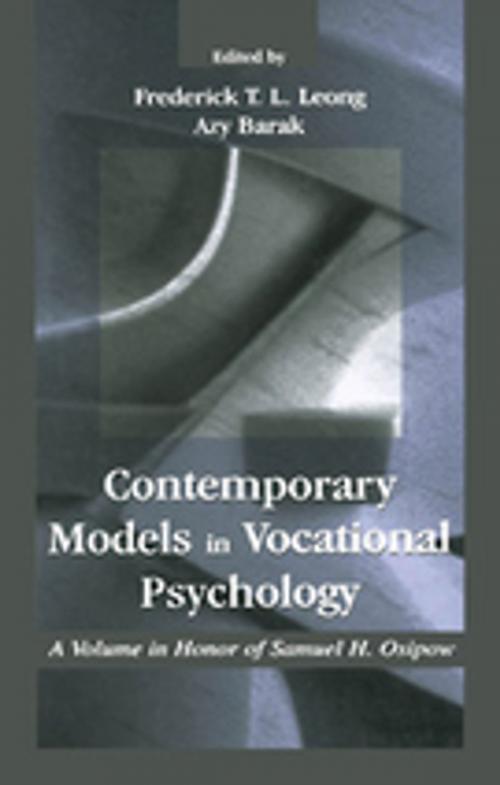Contemporary Models in Vocational Psychology
A Volume in Honor of Samuel H. Osipow
Nonfiction, Health & Well Being, Psychology, Mental Health| Author: | ISBN: | 9781135684266 | |
| Publisher: | Taylor and Francis | Publication: | May 18, 2005 |
| Imprint: | Routledge | Language: | English |
| Author: | |
| ISBN: | 9781135684266 |
| Publisher: | Taylor and Francis |
| Publication: | May 18, 2005 |
| Imprint: | Routledge |
| Language: | English |
This volume, prepared in honor of Samuel H. Osipow, a prominent teacher, researcher, author, and pioneer in vocational psychology, deals with significant theoretical and practical issues in the field of vocational psychology. As a state-of-the-art review of contemporary models of vocational psychology, this book will provide current and up-to-date coverage of the topics. It will also contain in-depth reviews of models of vocational psychology by leading scholars, including career decision making models, career self-efficacy, occupational stress, cross-cultural assessment of interests, and career counseling services within university systems.
A major theme that runs throughout all chapters is the concept of change. This unifying theme is fitting since the authors have prepared their chapters in honor of Osipow, who has significantly changed the field over the last four decades.
This volume should serve as a valuable resource for vocational psychology researchers, counseling graduate students, and career counselors. In addition to being a professional text, it should also be a useful supplement text for career development and career counseling courses in graduate programs of counseling, counseling psychology, and industrial/organizational psychology.
This volume, prepared in honor of Samuel H. Osipow, a prominent teacher, researcher, author, and pioneer in vocational psychology, deals with significant theoretical and practical issues in the field of vocational psychology. As a state-of-the-art review of contemporary models of vocational psychology, this book will provide current and up-to-date coverage of the topics. It will also contain in-depth reviews of models of vocational psychology by leading scholars, including career decision making models, career self-efficacy, occupational stress, cross-cultural assessment of interests, and career counseling services within university systems.
A major theme that runs throughout all chapters is the concept of change. This unifying theme is fitting since the authors have prepared their chapters in honor of Osipow, who has significantly changed the field over the last four decades.
This volume should serve as a valuable resource for vocational psychology researchers, counseling graduate students, and career counselors. In addition to being a professional text, it should also be a useful supplement text for career development and career counseling courses in graduate programs of counseling, counseling psychology, and industrial/organizational psychology.















